(Caution: The following article contains spoilers for the FX/Hulu miniseries “Shogun”)
FX and Hulu’s tremendous miniseries Shogun has sadly concluded, with another season unfortunately unlikely. Rachel Kondo and Justin Marks’ masterful adaptation of James Clavell’s novel about a stranded English navigator in feudal Japan has become one of the most popular and best-reviewed shows of 2024. It was the most-streamed program across all platforms in its first two weeks of release and has earned rave reviews both in the West and in Japan, praised for its visuals, performances, and authenticity. It is sure to be a favorite during awards season. Shogun is a classic fish-out-of-water story. It is also a classic example of the Alice in Wonderland paradigm in modern storytelling. My esteemed, and hilarious, colleague Jared Hoffman touched upon these similarities in his recent blog, and we’ll go into more detail here.
Alice’s Adventures in Wonderland is the ultimate fish-out-of-water story. With no sense of what she’s getting into, Alice follows the White Rabbit down the rabbit hole and finds herself in a completely alien realm - Wonderland. In a land she didn’t even know existed five minutes before, Alice digests potions with body-morphing properties, takes tea with a mad milliner, and angers a decapitating monarch. Throughout her journey, she’s learning on the fly, continuously adapting to rules and customs with a variety of characters serving as her unreliable guides. Alice must adapt to survive, discovering a deep well of inner strength in the process.
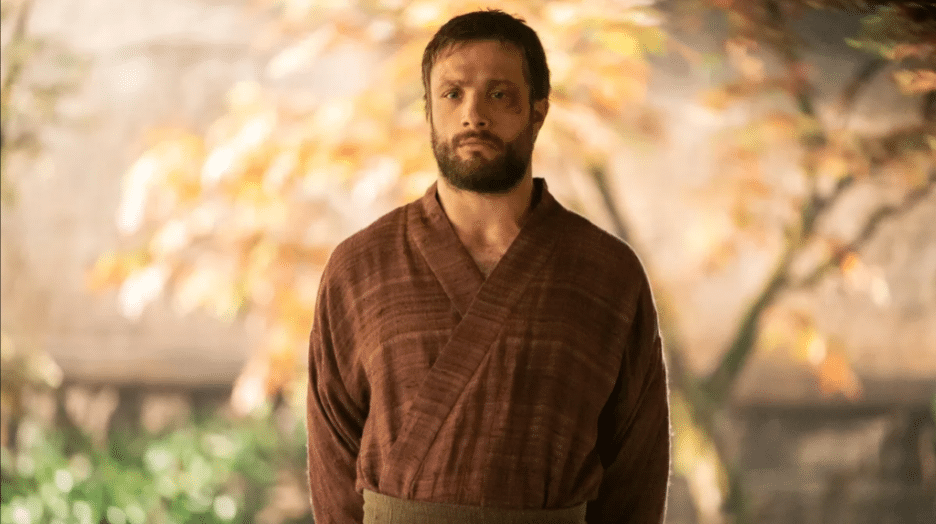
Blackthorne was one step ahead of Alice when he began his journey - at least he knew the world he was traveling to existed. Portuguese missionaries and merchants had established contact with Japan in the sixteenth century. But they were the only Europeans who had ever been to Japan. In fact, William Adams, on whom Blackthorne is based, is credited as the first Englishman to reach the country. Before that, all the knowledge the good subjects of Queen Elizabeth had about Japan came from shadowy rumors and fanciful legends.
Not wanting to be late to the proverbial party like a certain rabbit, Dutch merchants funded a trading mission to Japan, of which Blackthorne was the chief navigator. He and his companions arrive in Japan exhausted, emaciated, and starving. They wash up on the shore of a small fishing village where they are swiftly taken captive by Lord Yabushige, a scheming vassal of Lord Toranaga, one of the five Regents ruling Japan and facing the threat of impeachment from the other four Regents, led by Lord Ishido. But in Japan, impeachment doesn’t just mean removal from office. It’s a death sentence. Like Alice when she stumbles into the Jack of Knaves’ trial, Blackthorne finds himself in a hostile environment. He is completely ignorant of the rules and one wrong step could mean off with his head. Or being boiled alive. Or dismemberment by cannonball. He does not help himself with his often bullish and impulsive behavior, and his ignorance of the language and culture makes his life more difficult and more dangerous.
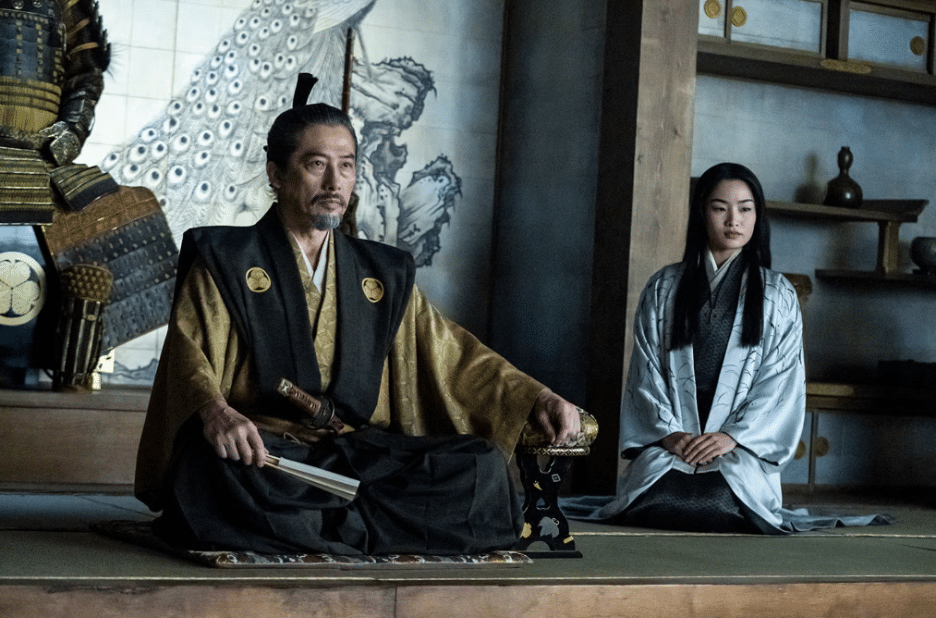
Language plays an essential role in both Shogun and Lewis Carroll’s novel. Though Wonderlandians speak English, Alice soon realizes that their use of the language is a tad…different. Confronted by a series of confounding riddles and turns of phrases, Alice must reorient her mind to the way language is used in Wonderland. It allows her to better navigate this strange land and better understand the beings who live there. Language is a window into culture, after all.
In Shogun, one of the main obstacles for Blackthorne, who is soon given the name Anjin (Japanese for “pilot”) by his new hosts, when he lands in Japan is, obviously, he doesn’t know the language. Equally obvious, and just as problematic, is the fact that few in Japan speak English. Luckily, for Anjin, he speaks Portuguese, which is more common, but not widespread. (The show performs a clever and effective trick in depicting the language usage of the characters. Japanese is spoken as Japanese while Portuguese is spoken as English.) Therefore, Anjin has to rely on translators to communicate with Japanese lords such as Toranaga and Yabushige.
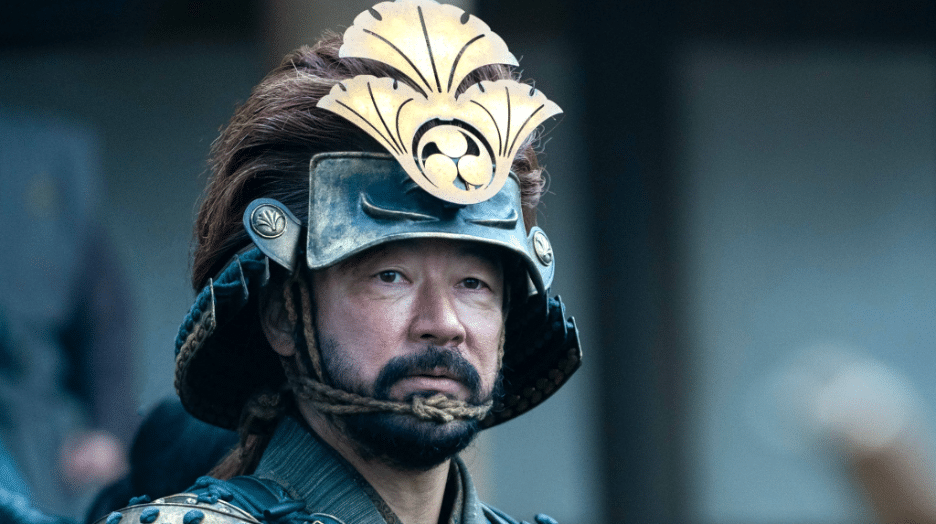
But that presents a problem, as Anjin hardly trusts those tasked with translating for him. In an early scene, Anjin is enraged at the prospect of a Portuguese Jesuit priest translating for him, correctly assuming that the Catholic clergyman will twist the Protestant Anjin’s words. It is only when Mariko, a noblewoman and Catholic convert in the service of Toranaga, becomes his translator that Anjin feels comfortable communicating. Throughout the series, Anjin learns Japanese, his fluency correlating to his cultural assimilation.
Another of the major shared themes of Alice’s Adventures in Wonderland and Shogun is the question of identity. Who are we? What makes us who we are? How should we express and act on that identity within the context of their community? The zany, topsy-turvy, emotionally effusive Wonderland was constructed as a counterpoint to the stuffiness of Victorian society. In Shogun, Anjin experiences the opposite. While the 17th century may not have been the most emotionally progressive environment, it was markedly different from how the show depicts feudal Japan, where hiding one’s true emotions and intentions is essential to surviving the snake pit that is court politics. This philosophy is exemplified by the idea of the Eightfold Fence, a concept of compartmentalization which allows a person to perform their duties while keeping their true feelings and values intact. An intellectual safe space, if you will.
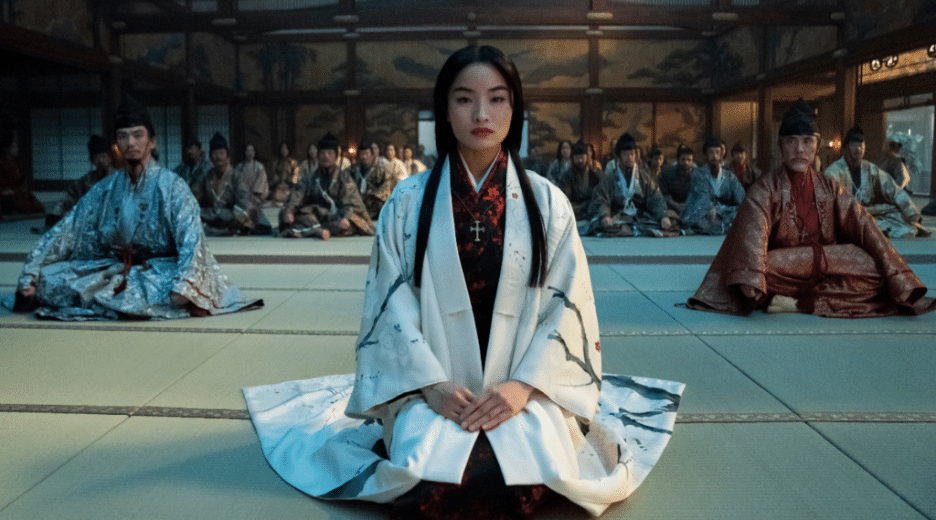
The Eightfold Fence also relates to the concept of honor and self-sacrifice exhibited by many of the Japanese characters in Shogun. Viewers see these beliefs in practice in the first episode when one of Toranaga’s vassals commits seppuku, a form of ritualistic suicide, after speaking out of turn during a contentious meeting of the Five Regents. The vassal’s actions are designed to exhibit and retain honor for himself and his family. Mariko also desires to commit seppuku because of the dishonorable actions of her father, believing her death to be the only way for her family to regain their honor. She can’t, however, due to her oath of service to Toranaga, which supersedes her own wishes.
For Anjin, who wears his emotions on his sleeve and believes in Western ideas of individualism, these concepts are confusing and antithetical to his views of the world. The preservation of one’s life above all else is paramount, especially for a freelance navigator who grew up without the privileges of wealth or station. But as Alice had to adapt to Wonderland in order to survive, Anjin had to assimilate in order to keep himself alive and reach his goal of returning home to England. What begins as self-preservation, however, turns into an honest appreciation for the customs of his new home. By the end of the series, Anjin fully embodies the beliefs and practices of a Japanese samurai, even willing to commit seppuku in order to save a village from Toranaga’s retribution.
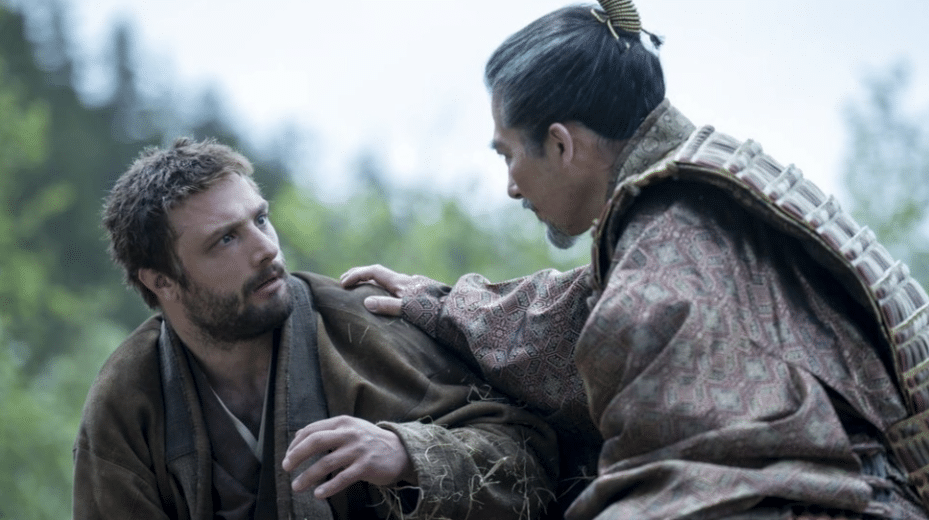
While Alice’s Adventures in Wonderland and Shogun are radically different in genre, aesthetic, and the instances of men and horses dismembered by cannonball, they share a common thread in the type of story they tell. Both are extreme fish-out-of-water stories featuring characters who must assimilate in order to survive. The fact that we can actually draw parallels between a television show released in 2023 and taking place in 1600 Japan with an English children’s novel published in 1865 speaks to the staying power of stories that tap into universal human experiences.

An itinerant storyteller, John Drain attended the University of Edinburgh before studying film at DePaul University in Chicago and later earned an MFA in Screenwriting from the American Film Institute Conservatory. John focuses on writing mysteries and thrillers featuring characters who are thrown into the deep end of the pool and struggle to just keep their heads above water. His work has been recognized by the Academy Nicholls Fellowship, the Austin Film Festival, ScreenCraft, Cinestory, and the Montreal Independent Film Festival. In a previous life, John created and produced theme park attractions across the globe for a wide variety of audiences. John keeps busy in his spare time with three Dungeons and Dragons campaigns and a seemingly never-ending stack of medieval history books.